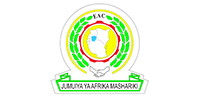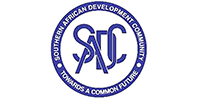African Medicines Regulatory Harmonization (AMRH)
Medicines regulatory harmonization (MRH) is a key component of the African Union’s Pharmaceutical Manufacturing Plan for Africa (PMPA), which aims to enable African countries to fulfil their national obligations to provide all citizens with safe, quality and efficacious essential medicines.
Medicines regulatory harmonization (MRH) has demonstrated a commitment to streamline medicines regulation and build regulatory capacity across partner states. Through the MRH initiative and other regional strategies, the MRH aims to decrease the amount of time taken to register essential medicines to treat priority diseases and reduce duplication of efforts through mutual recognition of decisions made by partner states’ national regulatory authorities (NRAs)
MRH initiatives have been implemented in the EAC and SADC regions with excellent levels of progress. A framework for harmonization of regulatory policies and activities has been initiated in all two RECs. As it stands, the NEPAD Agency, in collaboration with ECCAS, OCEAC and WHO, has developed a collaborative framework to outline activities and clearly defined roles and responsibilities for partners involved in the implementation of the MRH initiatives.
| Regional economic communities (RECs) | |
| RECs | Community members |
| EAC | Burundi, Kenya, Rwanda, South Sudan, Uganda, the Democratic Republic of Congo, and the United Republic of Tanzania. |
| SADC | Angola, Botswana, Comoros, the Democratic Republic of Congo, Lesotho, Madagascar, Malawi, Mauritius, Mozambique, Namibia, Seychelles, South Africa, Swaziland, Tanzania, Zambia and Zimbabwe. |
Objectives of (AMRH) Initiatives
- To reduce timelines for registration of medicines;
- To efficiently utilize available regional resources; and
- To ensure the availability of good quality medicines within the region.
Scope
Any medicine meeting the criteria of being an essential medicine is invited for submission to be considered for registration via the MRH collaborative process Special consideration may be given to medicines that are vital to effective treatment and to expanding treatment programmes, where there are currently limited options for health practitioners in the participating countries. This includes medicines identified for special regional programmes and initiatives.
The focus will however be on the priority disease conditions identified by MRH (List of priority diseases) plus reproductive health products. Priority will be given to the products included in the List of UN Commission for Live-Saving Commodities for Women and Children
- Priority medicines for management of the following medical conditions
- Commission for Live-Saving Commodities for Women and Children (MNCH products)
- HIV, malaria, tuberculosis, RH and neurological disorder
- Neglected diseases
- Cancer, diabetics, hypertension, kidney, hepatic and neurological conditions
- Prescription medicines from domestic manufacturers within the region
- Biotherapeutics products and biosimilars
- Any other medicines that are important from a public health perspective may be considered on a case-by-case basis.
Other eligibility criteria
- To be eligible for the MRH collaborative process an application in CTD format should have been lodged with at least two (2) MRH participating countries.
- Products registered by stringent regulatory authorities (SRA) are eligible for an abridged review process provided there is access to the full assessment reports on which the authorization by the respective SRA was based.
Applications not eligible
The invited generic products exclude those which have been prequalified by the World Health Organization (WHO), for which an accelerated registration mechanism (WHO PQ Collaborative Registration Process) can be applied.
Timeline for registration of medicinal product under the AMRH program
Within 90 days



